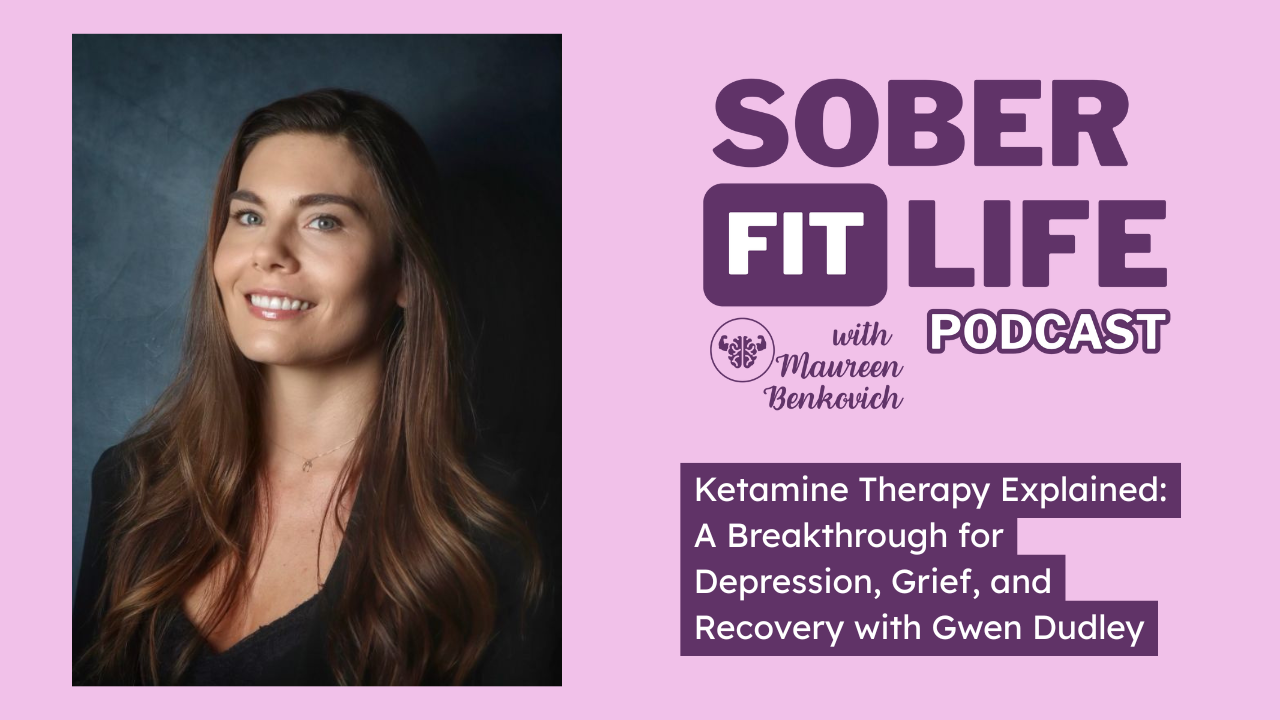Ketamine Therapy Explained: A Breakthrough for Depression, Grief, and Recovery with Gwen Dudley
Jun 09, 2025
I’m always searching for tools that help people heal in mind, body, and spirit—and in this episode of Sober Fit Life, I had the chance to dive deep into one of the most talked-about (and often misunderstood) tools in mental health: ketamine therapy.
My guest, Gwen Dudley, is the community outreach specialist at The Mood Wellness Center, and she brings not only professional expertise but personal experience to this conversation. Gwen has gone through her own grief and healing journey after losing her partner and now supports others in finding the courage to heal, even through unconventional methods.
This episode is especially personal to me. I recently completed ketamine therapy myself, and it changed the way I relate to my own depression. Even after years of sobriety and doing "all the right things," I still felt stuck—like I couldn’t get out of neutral. Ketamine didn’t magically fix everything, but it created space. It opened a door. And that space allowed me to feel hope and movement again.
What Is Ketamine Therapy, Really?
Gwen broke it down beautifully. Ketamine is a dissociative anesthetic that’s been used safely in hospitals for decades. In therapeutic doses and under medical supervision, it’s now being used to treat:
- Persistent depression
- PTSD
- Anxiety
- Grief and loss
- Suicidal ideation
- And yes, even recovery from addiction
Unlike traditional antidepressants that can take weeks to build up in the body, ketamine often works quickly by stimulating neuroplasticity—your brain's ability to form new neural pathways. That means your brain can literally start building new ways of thinking, responding, and feeling.
Myths, Fears, and Integration
One thing we touched on was the fear many people feel about psychedelic or ketamine therapies. There’s stigma, especially in sobriety spaces. After Matthew Perry’s tragic death, ketamine became a controversial topic. But as Gwen explains, there’s a huge difference between medically guided ketamine therapy and recreational misuse.
Gwen also stressed that integration is just as important as the therapy itself. After your session, what do you do with the insights, the emotions, the clarity? How do you bring it into your real life? Journaling, therapy, movement, and community support are all vital.
Why This Matters in Recovery
So many people in sobriety still struggle with depression, anxiety, and trauma. They remove the alcohol but are left with the pain. And while some people find healing through therapy and lifestyle changes, others need more support. Ketamine can be that bridge.
I believe sobriety isn’t just about quitting drinking. It’s about creating a life that feels good. A life where you’re not just surviving, but actually thriving.
Ketamine therapy, when done intentionally and safely, can help make that kind of life more accessible.
Listen to Sober Fit Life here
Resources & Links:
💬 Want to learn more about the tools I offer? 👇
If you’ve ever felt stuck, numb, or lost in the cycle of depression, I hope this episode reminds you that you’re not alone—and that there are more options than you think.
Stay curious. Stay compassionate. Stay sober fit.
✨ Maureen

